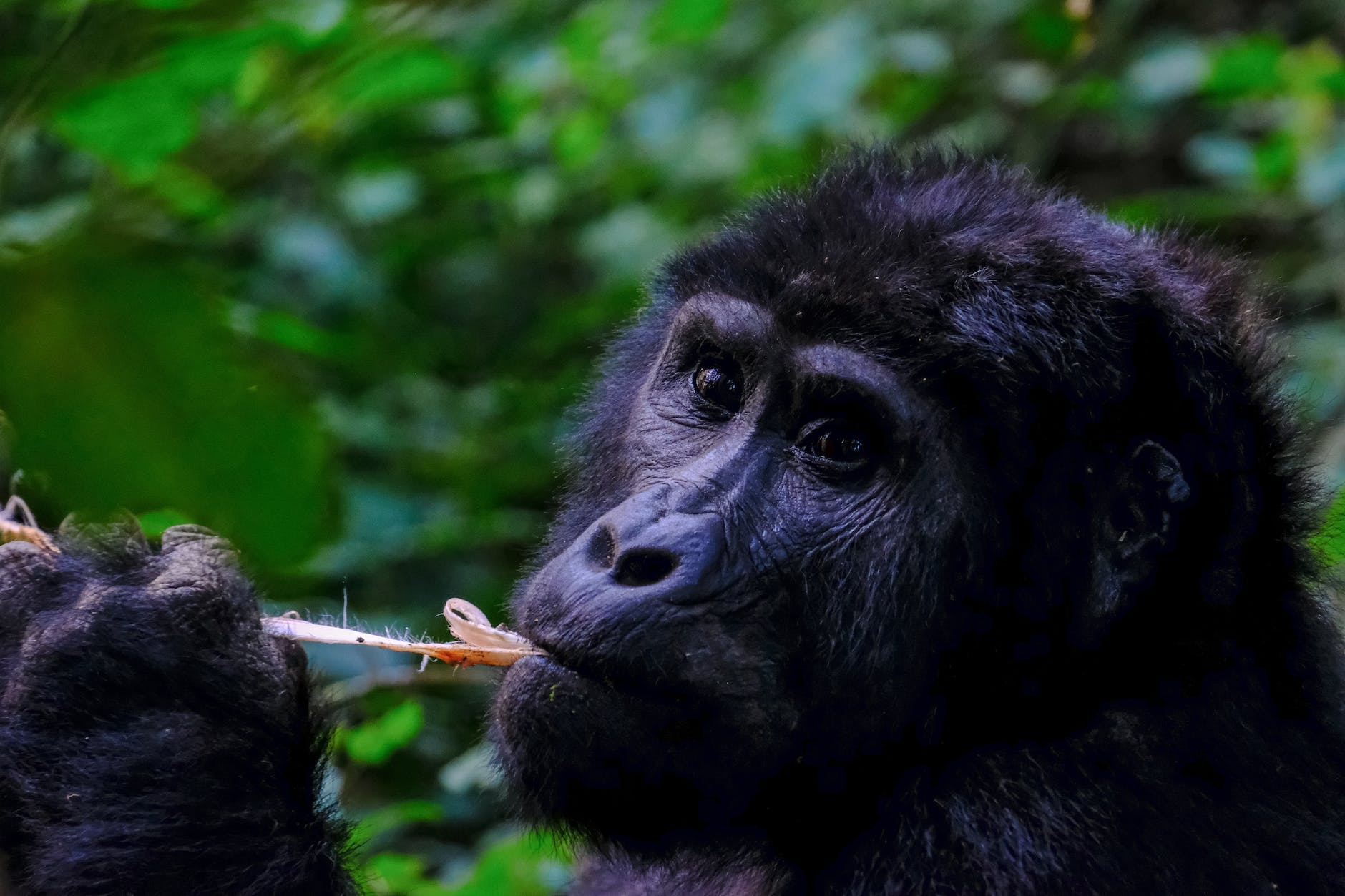Some people prefer listening instead of reading. If you’re one of these people, click here to listen to “The Gorilla Project Podcast”. It’s available on your favorite podcast platforms like Apple, Spotify, Google, and many more.
Lara M. Southern of Osnabrück University in Germany went on the Gorilla Project podcast to discuss how climate change affected the relationship between chimpanzees and gorillas in the wild. She wrote the famous research paper entitled “Lethal coalitionary attacks of chimpanzees on gorillas in the wild.”
“What you usually get with gorillas is you get a scent,” Lara described.
“They really smell very strong. Once you’re a chimp researcher, you can distinguish between this chimp and gorilla scent because it’s very different. We spend our whole days around chimps.”
Lara and the researchers initially thought there were levels of mutual avoidance between chimps and gorillas. Whenever they were in the forest, they could smell gorillas. They could see their feeding tracks and their footprints. So, they always knew they were there. They could also hear them sometimes. But Lara noticed that, to the chimpanzees, there was an indifference to the presence of gorillas. The scientists witnessed nine peaceful encounters between the two species. Lara even remembered seeing them eating figs together in a Ficus tree. Yet these friendly interactions didn’t surprise them because they were in line with research done at other field sites.
“So when these attacks happened,” Lara conceded. “It was something I don’t think I would have ever been expecting on any level.”
On the morning of February 6th, 2019, Lara and the researchers did what they always did- they got up very early to go to the nest site where their chimpanzees had slept the night before. At the nest site, they would begin their “focal follows,” following a different individual chimp each day.
“It’s the most exciting part about field research,” Lara thought. “Because you never know what’s going to happen.”
They set out to find the chimps (about five kilometers from the camp), and little did they know that they would walk thirty-five kilometers that day, one of the biggest “patrols” since the habituation study began.
To defend their territory, explore its boundaries, and ensure everything was in order, the chimpanzees would go on huge walks called “patrols.” They would be very silent, smell everything, listen intently, looking for neighboring communities. The researchers followed them to the very edge of their territory. At the very end of the day, dinner time, everyone was done and ready to go home.
“We were ready to put the chimps to bed and let them go nest,” Lara described.
It was around five o’clock when the forest was already getting dark.
“And that’s when all of the crazy commotions began.”
Listen to the full Gorilla Project podcast episode where Lara Southern tells the story in her own words.

